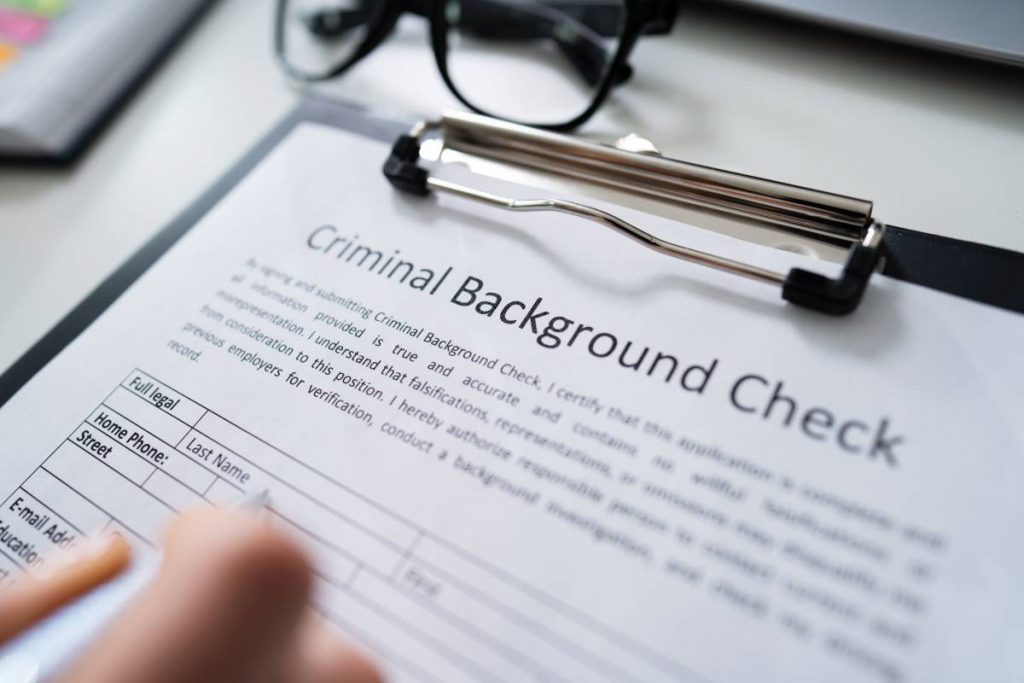A Criminal Record Check informs someone’s criminal history. Certain procedures may require you to have a criminal record check, such as adoption, immigration or for applying for a job. Since each institution establishes their own unique requirements when it comes to recruiting new people, some of them might ask for your criminal history depending on the role.
In this article, we’ll explore all about criminal record checks and how to apply for one in Canada.

Ways to Determine Criminal History
There are two ways to conduct a background check:
Name-Based Criminal Record Checks
A person’s name and birth date are checked against the RCMP’s Canadian Police Information Centre system and other local and national databases. You can obtain one from your local police services or through a third-party service, and it can range in price. Local police service fees and third-party fees are in addition to the Federal processing fee of $25.
Name-based checks aren’t always accurate in confirming a person’s identity. This is due to several issues like someone sharing the same name, differences in spelling, nicknames, name changes, etc. That’s why a certified criminal check may be required.
Certified Criminal Record Checks
If a name-based check fails to verify your identity, you may need a Certified Criminal Record Check. This will require you to provide fingerprints that the RCMP will compare against the National Repository of Criminal Records.
How to Obtain Fingerprints For a Certified Check
There are two ways to obtain a copy of your fingerprints.
- Contact your local Police Services: not every local police services branch will offer this service, but those that do may charge a fee in addition to the $25 federal processing fee.
- A third-party fingerprinting service: you can contact Canadian Criminal Real Time Identification Services for a complete list of accredited companies. They will also charge a fee in addition to the $25 federal processing fee.
Types of Criminal Record Checks
There are three types of Criminal record checks. Each shows information and requires different processes. They are:
- Criminal Record Check: it informs the applicant if he has been convicted of any crimes for which pardons have not been issued. It will also include any guilty findings under the Youth Criminal Justice Act.
- Criminal Record and Judicial Matters Check: you can expect to find the same information as above, plus:
- Court Orders
- Peace Bonds
- Charges and Warrants
- Active Probations and Probation Orders
- Crimes that you have an absolute discharge for (except those sentenced over a year ago)
- Crimes for which you have a conditional discharge (except those sentenced over three years ago)
- Vulnerable Sector Check: they are required for people applying for a position to work or volunteer with children or other vulnerable persons. A vulnerable sector check will provide the same information as the previous two, but it will also inform the applicant of recent cases where you were found not guilty by reason of mental disorder (except those where an absolute discharge has been issued), record suspensions for sexual offence convictions, and non-conviction details like withdrawn and dismissed charges.
In order to get one, you will need to provide them with:
- A description of the position
- The name of the business/organization holding the position
- Details about the children or vulnerable persons you will be working with
- If it’s a volunteer position, you must include a letter from the organization stating that you will not be receiving compensation or remuneration for said position.
It can only be conducted by the local police department where the applicant lives. Depending on their prices, this could cost up to $70.
Once you have met the requirements and the police approve the Vulnerable Sector Check, they will conduct a name-based check. If your name doesn’t match a criminal record, you can expect results in three business days.
If that fails to identify you accurately, a certified check might be required. If your identity matches with a criminal record for any of these checks, it could take 120 days to get your results. This is because extra time might be needed to verify incomplete or missing information or clarify details with local police services.




